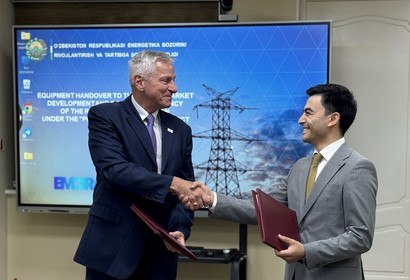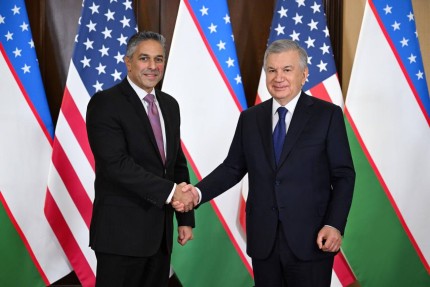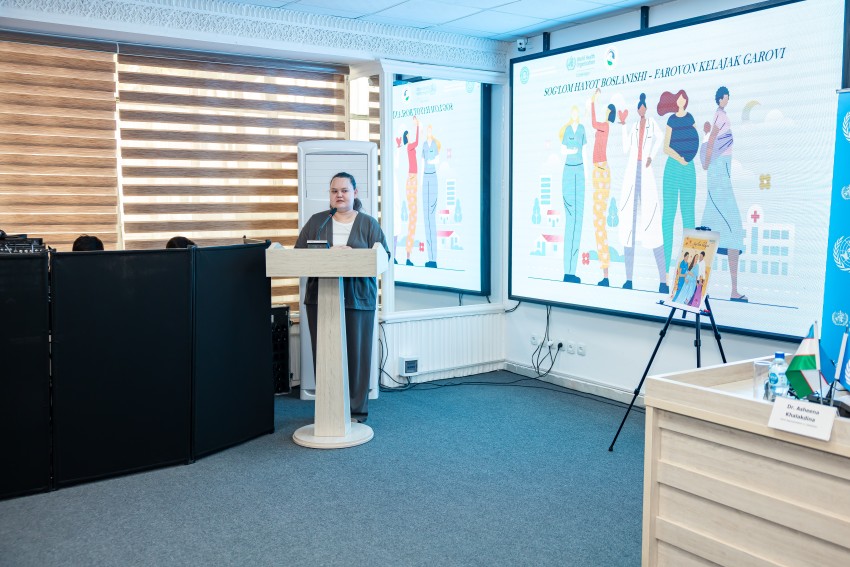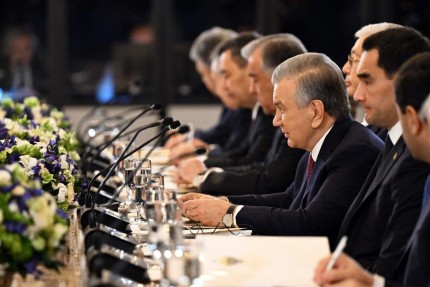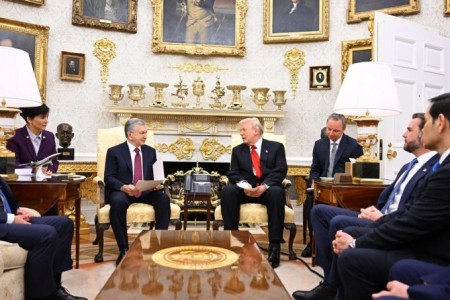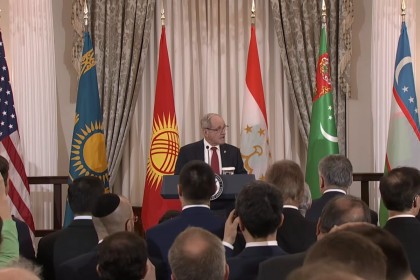Today, the United States Agency for International Development (USAID) handed over new IT equipment worth approximately $50,000 to the Energy Market Development and Regulatory Agency of the Republic of Uzbekistan.
The equipment includes computers, printers, and telecommunications equipment to support the agency staff in carrying out the next stage of reforms in the energy sector in accordance with the presidential decree in September 2023.
In his welcoming remarks, the USAID Acting Mission Director in Uzbekistan Edward Michalski highlighted the importance of effective energy sector regulation as essential to ensure a reliable electricity supply and attract private investment necessary for modernization and expansion. “USAID takes pride in collaborating with Uzbekistan, aiding in fortifying the legal and institutional framework for effective regulation by fostering the development of primary and secondary legislative structures. We believe the Agency can ensure further liberalization of the energy sector, reliable electricity supply, attract necessary investments, and protect consumer interests while promoting sustainable development,” he noted.
This equipment will improve the day-to-day functions of all Agency staff, enabling them to manage regulatory processes more efficiently. In turn, this will contribute to a more integrated and responsive regulatory environment within the sector. USAID will continue to support the Agency in a technical advisory capacity, as well as on the development and update of critical legal and regulatory documents, and providing further training and consultations, building on this productive partnership.
This equipment delivery is made possible through USAID’s flagship regional energy project, Power Central Asia. With a total budget of $39 million over a five-year period, the project works in partnership with the Government of Uzbekistan to improve the performance of the energy sector, expedite clean energy development, and enhance energy security and resiliency through greater regional connectivity and expanded cross-border electricity trade.

